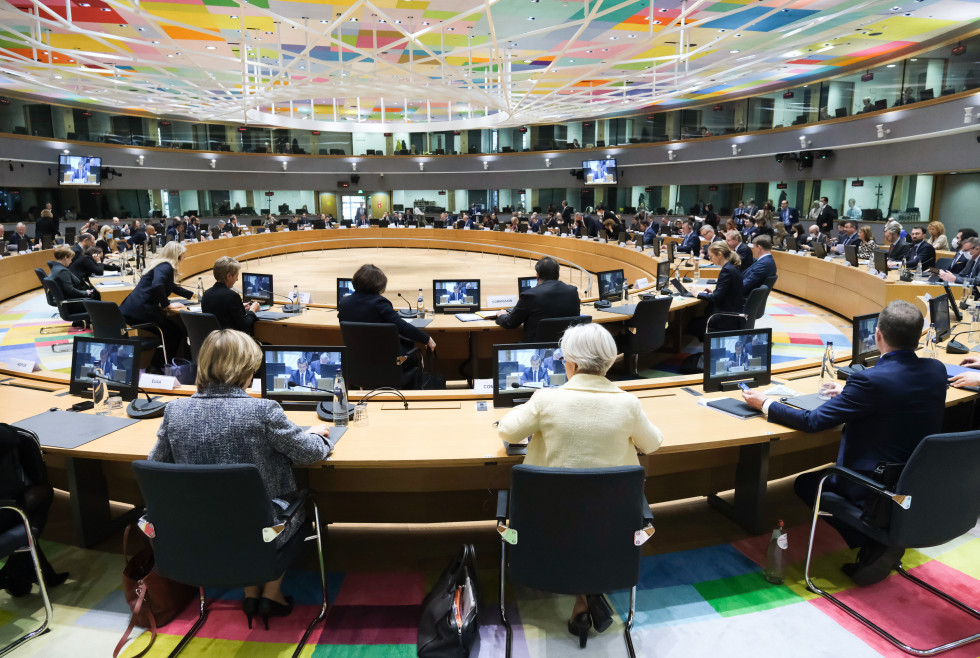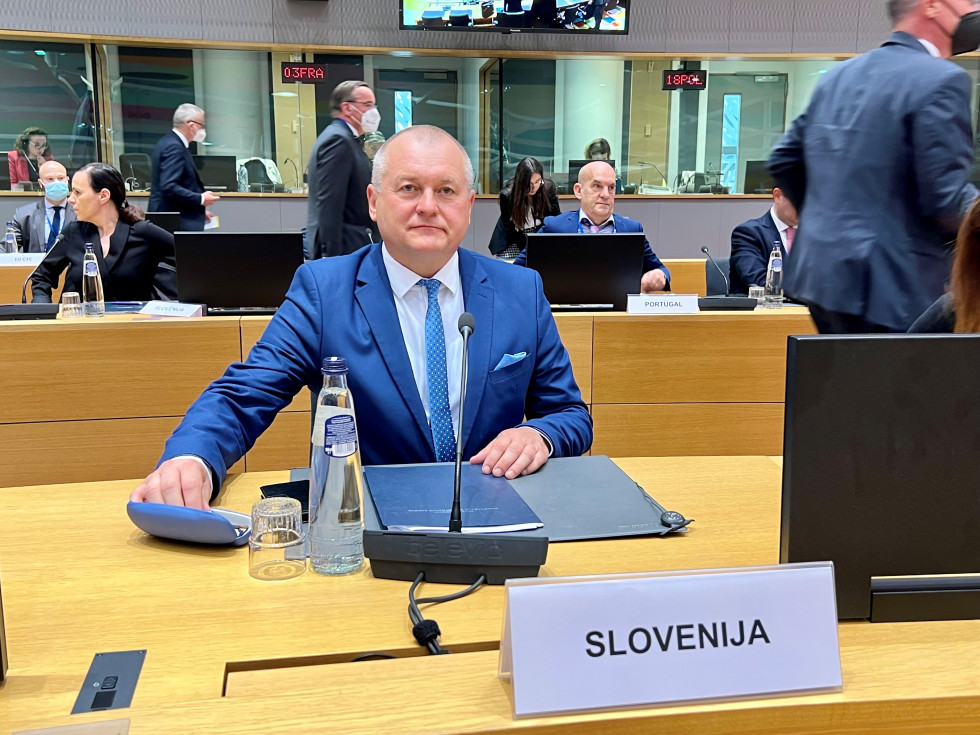EU home affairs ministers support the single registration systems for persons fleeing Ukraine
At the sidelines of the Council meeting, which opened with the address of the Ukrainian Home Affairs Minister Denis Monastirsky via VTC, Slovenian State reiterated Slovenia's solidarity with Ukraine and its people. »We have been providing support to persons fleeing form war to Slovenia since the beginning, while we also participate at the EU Civil Protection Mechanism by providing humanitarian aid to Ukraine."
Over 3.5 million persons have fled Ukraine since the start of the aggression and most of them found refuge in the EU. The Ministers expressed their support for support for a single registration system at the EU level. "We believe that the single registration system will serve as a tool to prevent misuse of the temporary protection scheme and reduce the risk of trafficking in human beings," Kangler said.
He highlighted the importance of coordinated and practical exchange of information between the member states regarding reception of refugees. "We see this as a role that could be taken over by the European Commission or a solidarity platform that could help coordinate the transport of refugees fleeing Ukraine to the destination EU countries."
"Lately, we have been receiving information on newly emerging criminal phenomena linked to the crisis in Ukraine. We must respond adequately and prevent criminal groups from exploiting the difficult circumstances of the refugees escaping Ukraine," Kangler said in his comment of the security aspect. Here too, timely exchange of all relevant information between the member states and support from EU Agencies, especially Europol and Frontex remain essential. "Their support is very valuable, particularly regarding the provision of analytical products that provide monitoring and intelligence on the newly arising threats and trends. This serves as the basis for our planning of operational responses," State Secretary added. The Ministry and the police understand the vulnerability of refugees and have been implementing preventive and awareness activities to help prevent trafficking in human beings.
Ministers took note of the situation in Moldova. The Republic of Moldova called on the EU to help with the reception of refugees from Ukraine. The Council gave its support to the standard operational procedures to help disburden Moldova and facilitate the assessment of vulnerability of refugees with the view that they will be able to receive immediate and adequate support and care upon their arrival to the destination country.
In addition to the help from EU Agencies, whose staff have been deployed to the most affected EU countries bordering the Ukraine, the European Commission also distributed the funds from the migration and border management funds to mitigate the consequences of the inflow of persons fleeing Ukraine. While welcoming European Commission's swift measure, the State Secretary proposed that potential use of the funds from the Internal Security Fund, which has so far remained intact, should also be considered, as Slovenian Minister Aleš Hojs had recently noted in his letter to the Commissioner Ylva Johansson.

Extraordinary Justice and Home Affairs Council | Author Evropska unija


